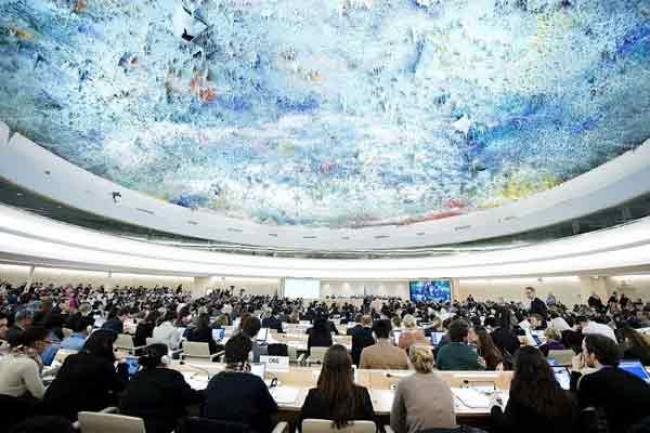Just Earth News 18 Jun 2016, 09:49 am Print

Jean-Marc Ferré
“Governments are currently sending an incoherent message to businesses,” said human rights expert Dante Pesce, who chairs the UN Working Group on Business and Human Rights, during the presentation of the group’s latest report to the UN Human Rights Council.
“On the one hand, they ask private businesses to respect human rights, and increasingly set out such expectations in law and policy,” Pesce noted. “On the other hand – barring notable exceptions – they show no great desire to use the means at their disposal to ensure that those enterprises they own or control respect human rights.”
The report lists measures that Governments should take to ensure SOEs fully respect human rights.
“It is high time for States to show concrete leadership, and require the enterprises they own or control to be role models on human rights,” the expert stressed. “Doing so is part of States’ international legal obligations, and it will only reinforce the legitimacy of States’ expectations towards private businesses.”
Many States manage large portfolios on SOEs, which have risen as significant actors in the global economy, active at home and abroad in diverse sectors such as energy, utilities, infrastructure, transports, telecommunications, and banking. The proportion of SOEs among Fortune Global 500 companies has grown from 9.8 per cent in 2005 to 22.8 per cent in 2014, with $389.3 billion of profit and $28.4 trillion in assets.
The performance of SOEs on issues of governance and human rights is mixed, with reported cases of corruption and lack of transparency, and harm caused to workers and communities throughout SOEs’ operations. “Yet these human rights impacts – and the duties of States to protect against them – remain largely ignored,” Pesce explained.
- Viral Irish food bank photo sparks shocking racist attacks on Indians
- Caught on camera: Two foreigners assaulted in Israel in an alleged racial attack
- Pakistan: Parents heartbroken after court sides with man accused of kidnapping minor Christian girl
- Pakistan: Trafficked 35 years ago, Bangladesh-born woman approaches court against FIA for offloading her from flight!
- Hindu tea worker found bound and bloodied in Bangladesh garden during general elections; investigation underway





-1763561110.jpg)
